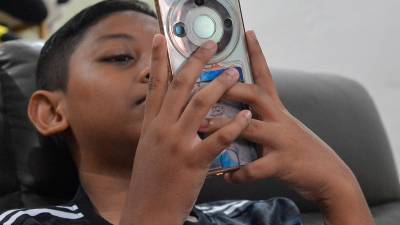PETALING JAYA: Child Rights Innovation and Betterment Foundation co-chairperson Srividhya Ganapathy said age restrictions alone would not keep children safe online and may even backfire, with digital literacy and education being the true safeguards against online harm.
She said Malaysia’s debate on stricter age verification for platforms such as TikTok must reflect the realities faced by families today.
“Smartphones are no longer luxuries. Parents, especially those who are divorced or working full-time, depend on them to stay connected with their children throughout the day, whether during custody transitions, at daycare or tuition or when a child is commuting alone.”
She added that as Malaysia moves towards a cashless society, many retailers and transport providers no longer accept cash, leaving parents with little choice but to equip children with phones for digital payments.
She said in this context, blanket bans or rigid age limits are not enough.
“Legal restrictions without meaningful,
age-appropriate education risk being ineffective or counterproductive. Outright bans often drive children to access technology in secret, without support or protection.”
She also said instead of focusing solely on age, there should be a strategy tailored to local realities, one that combines regulation with empowerment and embeds digital education for both children and parents.
Srividhya added that self-declared age restrictions, which children could bypass, create a “false sense of security” for parents.
“They could delay exposure, but they cannot prepare a child for what they would inevitably encounter online.”
“Children do not need to be protected from the internet, they need to be prepared for it. Readiness is not just about age, it is about understanding. A child may be above the legal age but still not know how to respond to bullying or grooming. Another may be younger but digitally literate and able to recognise unsafe situations.”
She said digital literacy, including critical thinking, safe online behaviour and knowing how to seek help, should be instilled in schools, reinforced at home and supported by platforms.
She also said digital spaces could be positive, offering children avenues for learning, creativity and community.
“A one-size-fits-all approach does not work because not all platforms carry the same
risks and not all children are at the same level
of maturity.
“Before using short-form videos, for example, children should understand content permanence, algorithms and grooming risks.
“We should treat children as teammates, not terrorists. Teammates are briefed, trusted with tools and supported, not punished or shamed when things go wrong.”
She said if Malaysia adopts stricter verification such as ID or biometric checks, safeguards must be non-negotiable.
“These include privacy-by-design age assurance methods. We would recommend
non-ID or zero-knowledge methods.
If IDs or biometrics are used, data
minimisation should be mandated, with clear
purpose limitation, short retention and
independent audits.”
She also called for simple, victim-centred reporting and takedown mechanisms, including options for children to request the removal of explicit or AI-generated images without exposing their identities.
“Phones could be lifelines. Exception pathways should exist for families which genuinely need earlier access, linked to
short literacy modules. Protection should not deepen inequality.”
Srividhya said the ultimate goal is not control for its own sake, but ensuring children go online knowingly, safely and with support.
